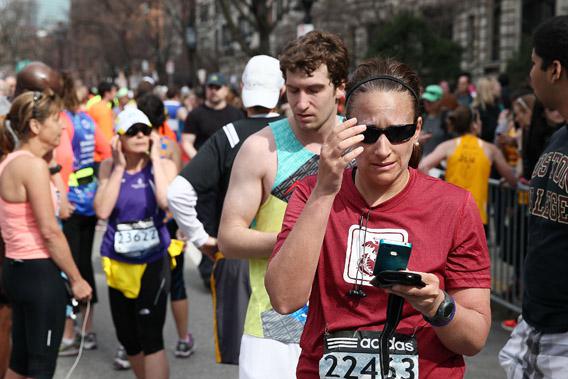In the wake of the horrific Boston Marathon explosions, friends and family members of runners and onlookers were frantically trying to get in touch and make sure their loved ones were safe. Unfortunately, local cell towers quickly became overloaded, making it difficult to place calls. Is it easier to send a text message?
Yes. When Hurricane Sandy struck the Eastern Seaboard in October and downed cell towers, telecommunications providers advised locals to reach out via text messaging rather than attempting calls. Why is texting more efficient in times of crisis?
Here’s a simple answer from the AT&T website: “During an emergency situation, text messages may go through more quickly than voice calls because they require fewer network resources.”
Furthermore, at 5 p.m. on Monday, the Associated Press reported that local authorities had shut down cellphone service in the Boston area to prevent remote-controlled explosives from being detonated. [Update, April 15: Wireless carriers denied that their service was shut down and the AP revised its report.]
“We ask for people to text rather than call during incidents like this. They’re more likely to receive text messages,” said Crystal Davis, a representative with Sprint. She said that the average hold time for a voice call is 180 seconds, during which someone could send 30 to 50 text messages, depending on how quickly they can type. She said that voice and text messages are configured differently, and that voice data is harder to send when cell towers get overloaded with traffic.
Verizon representative Thomas Pica added that the telecom provider has been working to enhance voice traffic in the area surrounding the explosions in Boston and asked customers to use text or email rather than voice calls to free up calling capacity for safety officials.
Got a question about today’s news? Ask the Explainer
